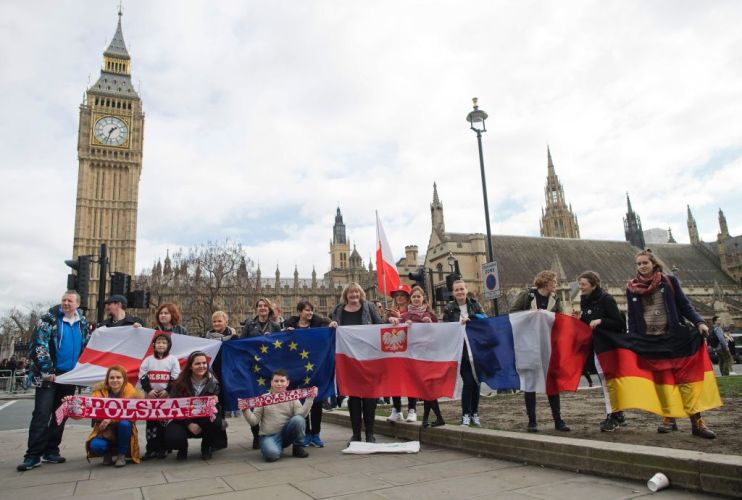Championing Britain’s economy means protecting our links with the EU — regardless of Brexit

As polling stations up and down the country open this morning, Europe-centric businesses like mine are asking what they will have to deal with after the votes have been counted.
My company is part of a group which employs over 300 people of multiple nationalities — many of them are EU nationals, but some are from the Commonwealth and beyond. With competing political visions for UK immigration policy, we fear that, whoever wins, it will become more difficult for our growing business to recruit from abroad as we have done in the past.
It is essential that businesses like ours can continue to build the elite, global teams that drive tech innovation. Our French owners chose London as their head office base for global expansion because of the city’s USP as a truly global business centre — but will this reputation survive the prolonged Brexit debate?
Britain in general and London in particular will always be a place of growth. But we still need to have confidence that we can build and nurture teams with multiple nationalities and talents here.
If the post-election Brexit debate is not carefully managed, there will be an immediate economic shock that would eclipse any possible long-term benefits of leaving the EU.
As a young London-born tech chief executive and the son of parents who felt privileged to migrate to the UK for its opportunity, my entrepreneurial vision depends on being able to build a world-class team. Technology is a global business and depends on global talent — talent that has always been able to make London home.
We should remember that protecting EU citizens in Britain means protecting European businesses too. Many of the EU citizens I know have livelihoods that are tied to European-owned or Europe-linked businesses with head offices in the UK.
In an election in which protecting business and entrepreneurship has been sidelined, it is important to remember that all the parties want Britain to be strong economically, whatever the Brexit resolution. And that means maintaining strong UK-EU business links.
It is time we saw behind the caricatures of “the people” versus “big business” and realised that millions of workers in Britain are employed by small and medium-sized businesses. And many of those businesses are owned by EU citizens and companies — whether the owners are ultimately based in the UK or abroad.
This is not a minor issue. In 2014, about 1.6m people in the UK (that’s one in 20 workers) were employed by businesses that were EU-owned. We don’t know how many of these employees were British, but at that scale this is hardly an issue that affects only EU citizens. These EU-owned businesses contribute 27 per cent of the UK’s non-financial business economy.
The extent of UK-EU business interdependence is perhaps most clear when looking at Britain’s links with Germany. There are an estimated 1,300 German subsidiaries in the UK and 25,000 British companies with a branch in Germany alone, totalling an overall of 2.6m jobs.
Some of Britain’s biggest brands are, in fact, European. Rolls Royce and Mini are German-owned, while Dulux is Dutch, as is Marmite. Economically, Britain and Europe are not just neighbours; they are conjoined twins.
As a proud Londoner, I love that my city is the place that can bring together the most talented people from all over the world. My office is a microcosm of a Britain that has a competitive edge precisely because of its global DNA.
So as the country heads to the polls, I hope that people like me, my cosmopolitan employees and French associates will be listened to in Westminster.
It is time to put party politics, egos, and even nationalism aside in order to protect London and its workers — whatever the colour of their passports.
Main image credit: Getty